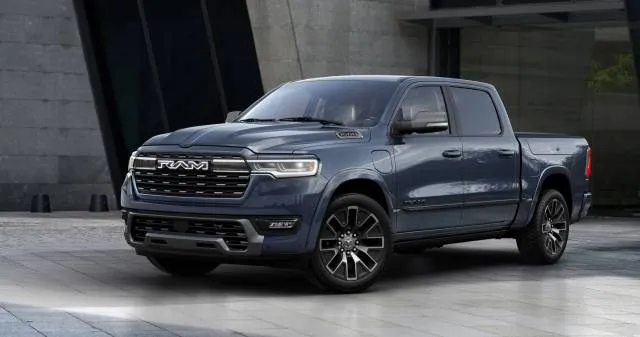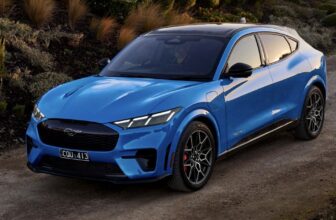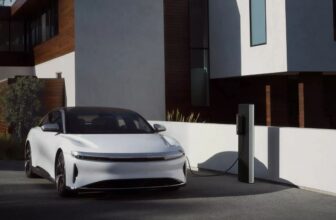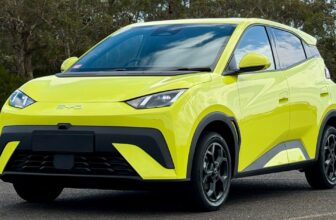
Take a look at our newest merchandise
One other day, one other electrical pickup bites the mud. Ram simply pulled the plug on their full-size electrical truck, becoming a member of what’s turning into a somewhat crowded graveyard of EV pickup desires deferred, delayed, and downright deserted. Should you pay attention carefully, you’ll be able to virtually hear the collective sigh of aid from American truck consumers who by no means requested for this electrified revolution within the first place.
The Ram 1500 BEV (Battery Electrical Automobile, for these conserving monitor of acronyms) was presupposed to be the chosen one: the electrical truck that may lastly crack the code of American pickup preferences. With a large 168 kWh battery promising 350 miles of vary, and a good larger 229 kWh model focusing on 500+ miles, former CEO Carlos Tavares boasted it might “outperform all opponents” in vary, towing, and charging pace. As an alternative, it carried out the last word disappearing act, vanishing into the ether after a number of delays pushed it from 2024 to 2025, then 2026, then 2027, and eventually into the nice past.
Ram’s cancellation isn’t an anomaly: it’s the canary within the coal mine (or ought to I say, the lithium within the battery?). Your entire electrical pickup panorama reads like a masterclass in overpromising and underdelivering, with a touch of “clients didn’t need this anyway” thrown in for good measure.
The Nice Electrical Pickup Shuffle

Take Normal Motors, which has turned delaying the Silverado EV into an artwork kind. Manufacturing of the Chevy Silverado EV and GMC Sierra EV on the GM Orion Meeting plant has been pushed again to late 2025, marking almost two years of zero manufacturing. That’s now not a delay… That’s a strategic retreat with higher PR.
The corporate that when promised the Silverado EV could be “a high-volume entry” and inexpensive for fleets has as an alternative delivered high-volume frustration and fleet-footed excuses. The delay is the principle purpose why GM gained’t be capable to meet a earlier aim of getting manufacturing capability for a million EVs in 2025, although they’re blaming “gradual demand” somewhat than their very own manufacturing missteps.
The Inconvenient Reality About American Truck Tradition


Right here’s what the automotive trade appears to have missed: Individuals purchase vehicles for very sensible, very un-electric causes. They should tow boats to the lake, haul lumber from House Depot, and make it to the job website with out worrying about charging infrastructure. The common truck purchaser needs to gasoline up in 5 minutes, not plan their route round charging stations like they’re enjoying some form of automotive chess match.
Certain, Tesla’s Cybertruck generated huge buzz with its angular design and bulletproof demonstrations (nicely, principally bulletproof). However after this yr’s first three months, the stainless-steel truck formally recorded its second quarter in a row of declining gross sales. Even Elon Musk’s actuality distortion subject has limits, apparently.
The Ford F-150 Lightning, arguably essentially the most smart entry on this electrical truck circus, has proven some life. Ford basically dominated the primary half of the yr when it got here to electrical truck gross sales, shifting 13,029 items in the identical stretch of time it took Tesla to promote 10,712 Cybertrucks. However even Ford’s relative success comes with a caveat: The Mannequin e division posted a lack of round $130,000 for each electrical car it offered from January to March 2024. That’s not sustainable enterprise; that’s company philanthropy with further steps.
Vary Anxiousness Meets Actuality Anxiousness


The technical specs sound spectacular on paper. Ram’s canceled truck promised 500+ miles of vary with its largest battery. The issue? That huge battery pack would have added hundreds of kilos and tens of hundreds to the value. American truck consumers are sensible folks: they’ll do math, and so they can see that paying $75,000+ for a truck which may depart them stranded at a damaged charging station doesn’t precisely scream “good buy.
In the meantime, Ram’s pivot to the 1500 REV (the rebranded Ramcharger) is telling. This range-extended electrical car combines a 92 kWh battery with a 3.6-liter V-6 engine and 27-gallon fuel tank, providing 690 miles of complete vary. In different phrases, they’re admitting that pure electrical isn’t prepared for prime time in truck-land.
Ram’s strategic retreat to a range-extended electrical car reveals the uncomfortable reality that automakers have been dancing round: hybrids make extra sense for vehicles than pure EVs. The REV gives 145 miles of electrical vary for every day driving, plus the safety blanket of fuel for lengthy hauls and heavy towing. It’s the mullet of the automotive world—electrical within the entrance, gasoline within the again.
This isn’t simply Ram studying the room; it’s all the trade slowly coming to phrases with physics, infrastructure actuality, and buyer preferences. This electrical “truck” market, together with SUV variants, accounted for almost 58,000 autos offered through the first half of this yr: a fraction of total truck gross sales.
Will Individuals At all times Shun EV Vehicles?


Individuals aren’t anti-electric car; they’re anti-impractical car. With regards to pickup vehicles, practicality reigns supreme. You’ll be able to costume up an electrical truck with all of the torque and tech on the planet, but when it may’t haul a camper to Yellowstone with no PhD in route planning, it’s lacking the purpose completely.
Ram’s cancellation is just not a failure; it’s a triumph of actuality over advertising fantasy. Typically the perfect product choice is understanding when to not construct a product in any respect. Now, if solely the remainder of the trade would get the memo earlier than burning by a number of extra billion {dollars} on vehicles no one requested for.
The American pickup truck market will finally go electrical, but it surely’ll occur when the expertise matches the life-style, not when automakers determine it ought to. Till then, count on extra cancellations, delays, and awkward pivots to range-extended options that no one needed to confess made sense all alongside.







